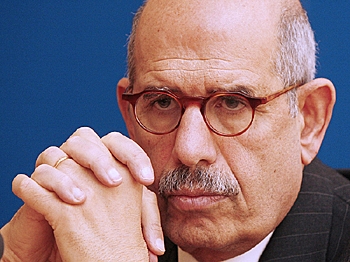CAIRO: The last few years have seen net foreign direct investment (FDI) in Egypt soar in an atmosphere of economic reform and growth, but the picture these days is not as rosy, with 2008 leading to wariness among some foreign investors.
FDI reached $13.2 billion in fiscal year 2007/08 compared to $3.9 billion in fiscal year 2004/05.
While foreign investment in Egypt has flourished, the eruption of the global financial crisis has dashed hopes of a similar performance in the near future.
Investments from Europe and the Gulf in Egypt are expected to decline, said Wael Ziada, head of Egypt research at investment bank EFG-Hermes, who identifies these two sources as significant drivers of FDI recently.
European economies are slowing down, he said, and Gulf Cooperation Council (GCC) investment has shifted inward.
FDI inflows from the European Union and GCC were $5.1 billion and $2.75 billion in fiscal year 2007/08, respectively, according to Central Bank of Egypt (CBE) figures.
Magdy Sobhy, economist at the Al Ahram Center for Political and Strategic Studies, notes that during the last three years Gulf investors have been directing significant amounts of FDI abroad into sectors such as construction. “You had that chunk of investment going to search for any field to invest in, Sobhy said. “This is finished.
The United States, which is now in recession, channeled $6.4 billion of foreign direct investment to Egypt in the last fiscal year, according to CBE figures, and together with Europe and the Gulf, it makes up the bulk of private foreign investment here.
Angus Blair, head of research at regional investment bank Beltone Financial, explains that in the current economic climate, companies are reducing spending and reevaluating capital expenditure, including FDI outlays.
“At the moment, most companies are holding on to their cash if they have it or if they have lines of credit, [they are] holding on to them, he said, “and are waiting to see what the market’s going to do.
Beltone forecasts net FDI in Egypt will be $7 billion in the current fiscal year and $5 billion the following year, while EFG-Hermes expects $7 billion and $6 billion, respectively.
Investment from abroad has already begun to slow. According to provisional CBE figures, although FDI inflows in the first quarter of fiscal year 2007/08 were $3 billion, the figure for the first quarter of the current fiscal year came in 44 percent lower at $1.7 billion.
Analysts predict that a large amount of FDI will go to the oil and gas sector.
EFG-Hermes anticipates that a minimum of $4 billion will go into this sector over the next two years.
One substantial investment in the oil and gas sector was scuttled last year as a result of a sudden alteration to regulations that stripped energy-intensive industries such as refineries of their free-zone status. These changes came as part of a raft of measures passed by parliament on May 5, 2008 to fund an increases in public sector salaries and pensions.
Following these decisions, Kuwait’s Al Kharafi Group pulled out of plans to locate a multi-billion dollar refinery project in Egypt. Regarding the decision to remove free-zone privileges from refineries, Ziada said: “I think the discontent that came from investors on this was a clear sign that this particular decision was not the right decision.
Many have criticized the overnight nature of the May 5 measures, which also made income from T-bills subject to taxation and hiked the price of a number of fuels, including that of natural gas used by energy-intensive industries.
“Those decisions damaged confidence and made everyone more nervous, because basically it went back on what Egypt was meant to be about, which was free market reform, Blair said. The CASE 30 index reached its record closing high on May 5 at 11,935.67 and then entered a downtrend.
Last summer witnessed another bump in the road for FDI when the government refused to accept the top bid for a two-thirds stake in Banque Du Caire – a bid that would have reportedly channeled $1.4 billion into state coffers.
“I think the pricing committee had been unrealistic. They hadn’t really looked at the falls in the market and what was happening globally, Blair said.
While Ziada argues that the May 5 execution was flawed, he notes that the measures were largely in accord with government intentions to reduce subsidies. “Most of the decisions were in line with what the government has been doing, with the exception of a few ones like the refinery issue, he said.
Minister of Investment Mahmoud Mohieldin told Reuters late last November that refineries would be given back their free-zone status.
Earlier this month, Prime Minister Nazif reportedly removed the ceramics, glass and chemical sectors from the list of energy-intensive industries, allowing them to pay the same rates as non-energy-intensive industries for electricity and natural gas, rather than the increased rates implemented last summer. This is a temporary measure that will last until the end of 2009.
With Banque Du Caire and May 5 in the distant past, Blair sees a shift of policy in a reform-friendly direction in recent months. This was relevant, he said, in regards to the government’s reinstatement of free-zone privileges for refineries, its response to the global crisis, and its willingness to solve the Agrium fertilizer factory dispute.
While Blair is positive about the government’s attitude regarding reform, he argues that this won’t translate into a jump in FDI in the near future.
“That doesn’t mean that FDI is going to rise short term, because it won’t, he said.

